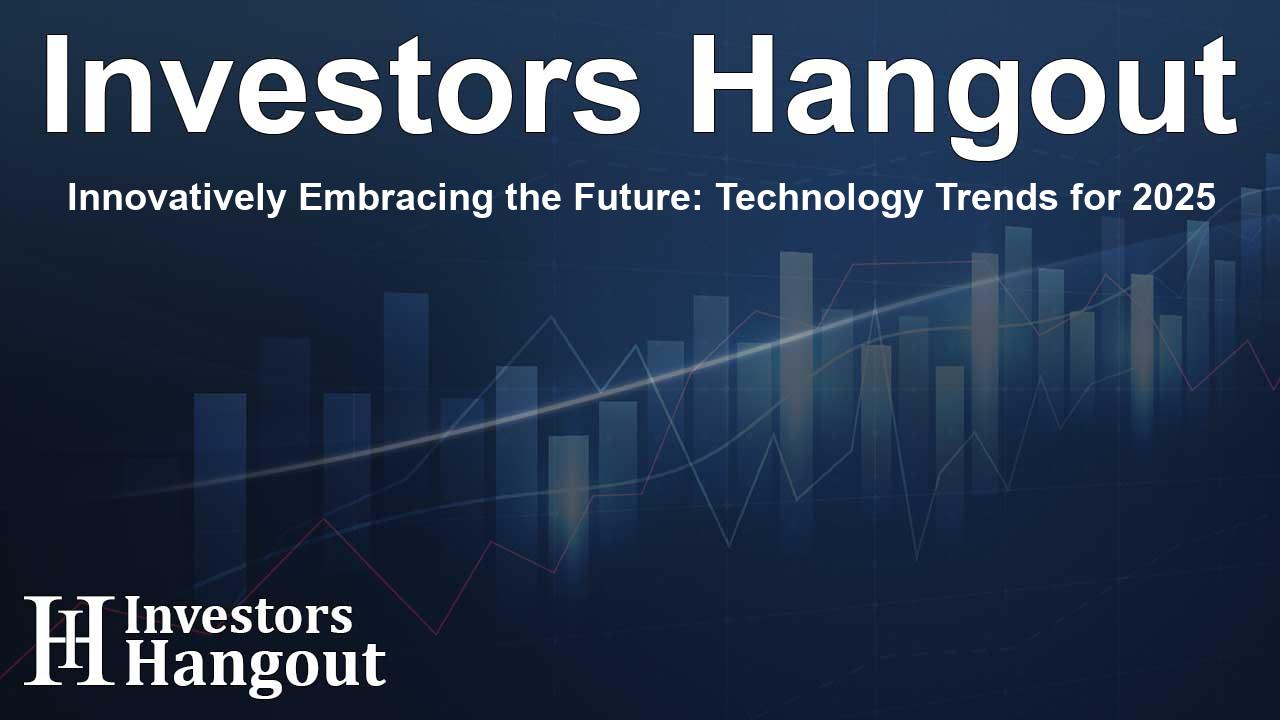Innovatively Embracing the Future: Technology Trends for 2025

Exciting Technology Predictions for 2025
As we move deeper into the 21st century, technology is evolving at a remarkable pace, bringing along fresh innovations that promise to solve complex challenges and enhance our daily lives. The predictions for the year 2025, as articulated by IEEE, highlight key trends that could shape the future landscape of technology in unprecedented ways.
AI and Large Language Models
One of the most significant advancements expected in 2025 is the leveling of the AI playing field through the deployment of new forms of Large Language Models (LLMs). These models, which have already begun to transform various sectors, will be further adapted to ensure that developers, businesses, and communities can efficiently tap into their potential. Open-source initiatives are stepping up, while cloud services will enable organizations to use LLMs more effectively with integrated solutions and prompt engineering. This paradigm shift is poised to create a wave of domain-specific transformations across industries, essentially leading to more efficient AI applications.
Drone Technology Expansion
In the logistics, agriculture, and disaster response sectors, the use of drones is set to expand significantly. The introduction of Drone-as-a-Service (DaaS) in 2025 will provide reliable solutions at lower costs, thanks to advancements in drone technology including battery life and electric vertical take-off and landing capabilities. As these innovations propel the commercial viability of drones, we can expect to see a surge in their adoption across various industries.
Impact of AI Agents
Building on the success of LLMs, AI agents will emerge as indispensable tools in finance, manufacturing, and retail sectors. These agents will utilize a combination of LLM technology, machine learning models, and rule-based systems to furnish autonomous solutions. This development marks a turning point, making it easier for businesses to deploy AI agents for customer service and operational efficiencies. With a focus on user-friendly interfaces and low-code customization, the accessibility of these solutions is expected to soar in the coming years.
Advancements in Robotics
The future looks bright for robotics as well. In 2025, we expect to see the realization of embodied intelligence in robots, enhancing their ability to learn, adapt, and interact within dynamic environments. This autonomy will be cultivated through research in areas like computer vision, machine learning, and advanced edge computing. Furthermore, communication protocols between robots will evolve, allowing for seamless collaboration, which will be critical in various operational scenarios.
Wearable Technology in Medicine
Wearables will transition from monitoring fitness activities to providing critical medical insights. The concept of integrating biomarkers into wearables could allow for early disease detection and proactive health monitoring. This advancement relies on identifying new, low-cost biomarkers and developing sophisticated machine learning algorithms to manage data effectively. As technology progresses, we can anticipate an increasing number of wearables equipped for medical-grade monitoring, reshaping the healthcare landscape.
Supporting Growth and Innovation
Alongside these remarkable advancements, the technology predictions committee also foresees significant growth in several areas, including autonomous driving, augmented AI, and sustainable computing. Each of these emerging technologies presents unique opportunities for maximizing impact and addressing some of the most pressing issues of our time. For industry stakeholders, government bodies, and academic institutions, it is imperative to foster these advancements and support innovation across the landscape.
Conclusion
As we prepare for 2025, the insights shared by IEEE underscore the transformative potential of technology. By harnessing the advancements in AI, drone technology, robotics, and wearables, the global community can proactively shape a future that is not only technologically advanced but also inclusive and beneficial for society as a whole. This journey into the future is marked by collaboration and a collective commitment to leveraging technology for the greater good.
Frequently Asked Questions
What are the top technology predictions for 2025?
The subcategories include advancements in AI, wider drone accessibility, the rise of AI agents, breakthroughs in robotics, and developments in wearable technology for healthcare.
How will AI affect industries in 2025?
AI is expected to enhance efficiency and create specialized applications across various sectors, facilitating better customer engagement and operational effectiveness.
What role do wearables play in healthcare innovations?
Wearables are anticipated to transition to medical-grade monitoring, enabling early disease detection through advanced technology and low-cost biomarker identification.
How are drones predicted to change logistics by 2025?
Drones will offer reliable, low-cost logistics solutions, redefining operations in agriculture, disaster response, and other vital sectors.
Why is collaboration important for future technology advancements?
Collaboration ensures that various stakeholders can contribute to and benefit from technological advancements, driving innovation that meets societal needs effectively.
About The Author
Contact Thomas Cooper privately here. Or send an email with ATTN: Thomas Cooper as the subject to contact@investorshangout.com.
About Investors Hangout
Investors Hangout is a leading online stock forum for financial discussion and learning, offering a wide range of free tools and resources. It draws in traders of all levels, who exchange market knowledge, investigate trading tactics, and keep an eye on industry developments in real time. Featuring financial articles, stock message boards, quotes, charts, company profiles, and live news updates. Through cooperative learning and a wealth of informational resources, it helps users from novices creating their first portfolios to experts honing their techniques. Join Investors Hangout today: https://investorshangout.com/
The content of this article is based on factual, publicly available information and does not represent legal, financial, or investment advice. Investors Hangout does not offer financial advice, and the author is not a licensed financial advisor. Consult a qualified advisor before making any financial or investment decisions based on this article. This article should not be considered advice to purchase, sell, or hold any securities or other investments. If any of the material provided here is inaccurate, please contact us for corrections.
